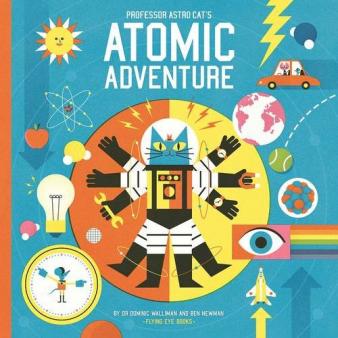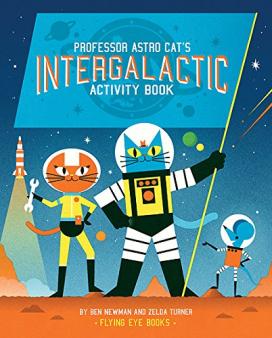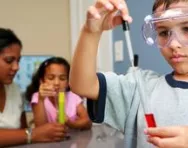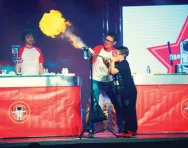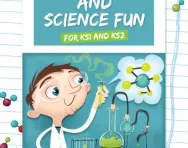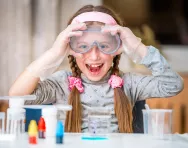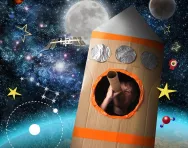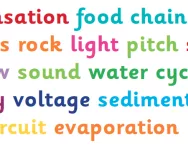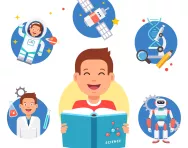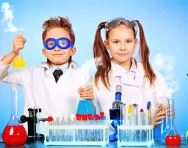TheSchoolRun.com closure date
As we informed you a few months ago, TheSchoolRun has had to make the difficult decision to close due to financial pressures and the company has now ceased trading. We had hoped to keep our content available through a partnership with another educational provider, but this provider has since withdrawn from the agreement.
As a result, we now have to permanently close TheSchoolRun.com. However, to give subscribers time to download any content they’d like to keep, we will keep the website open until 31st July 2025. After this date, the site will be taken down and there will be no further access to any resources. We strongly encourage you to download and save any resources you think you may want to use in the future.
In particular, we suggest downloading:
- Learning packs
- All the worksheets from the 11+ programme, if you are following this with your child
- Complete Learning Journey programmes (the packs below include all 40 worksheets for each programme)
You should already have received 16 primary school eBooks (worth £108.84) to download and keep. If you haven’t received these, please contact us at [email protected] before 31st July 2025, and we will send them to you.
We are very sorry that there is no way to continue offering access to resources and sincerely apologise for the inconvenience caused.
6 ways to make science fun for kids

For this generation of children, it’s highly likely that their future will – in some way – involve science. According to the National Careers Service, 70 per cent of all businesses employ people with science, technology, engineering and maths skills, and many are struggling to recruit the staff they need.
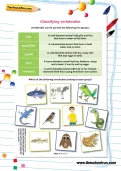
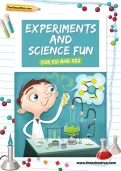
Download fantastic science resources today!
- Experiments And Science Fun pack
- Science Learning Programme for each school year
- All the instructions, questions and information you need
Getting kids to engage with science isn’t always easy, though. While they almost universally love getting stuck into experiments and practicals, the theoretical side can be trickier to master. But encouraging an early enthusiasm for the subject is vital: ‘There’s much evidence that children’s interest in science is shaped before they leave primary school,’ says Debbie Jones, Fellow of the Primary Science Teacher College.
Part of this responsibility is up to schools, but, as a parent, there are lots of great ways to develop your child’s passion for science. We asked six experts for their best ideas.
Play with their food
Stefan Gates, presenter of CBBC’s Disaster Chefs and Incredible Edibles
‘If you can make science relevant to primary school kids’ lives, you have a fighting chance of them remembering what you’ve told them, sharing the information with their mates, and lighting a little spark of interest that may just start the fire of fascination with science.
‘Food is a brilliant tool for making this vital connection. You can get them to eat a spoonful of icing sugar and reveal that they’ve just eaten an explosive substance, explain the chemical breakdown of farts, paint their tongue with blue food colouring to show them their tastebuds – the list is endless. They’ll gain a new understanding that chemistry, biology and physics are at the heart of the food they put in their mouths.’
Read all about it
Dr Greg Walliman, author of the Professor Astro Cat science books for children
‘All of science is a big detective story where all the clues are out there, but it just takes some putting together. I write the Professor Astro Cat books – which cover everything from atoms to space – to help unlock children’s passion for science by piquing their curiosity and giving them some mind-blowing facts about the world.
‘Books are a safe place to discover new things without feeling like you’re in a lesson or going to be tested. Professor Astro Cat books are beautiful to look at, but the pictures also explain the science. On top of that we used storybook techniques like characters, humour and narrative. It means they’re not so different from other books children read, but our story is all about how the universe works.’
Explore the great outdoors
Debbie Jones, Fellow of the Primary Science Teacher College
‘The garden is a brilliant place for your child to learn about biology. You can search for minibeasts, collect and observe them with a magnifying glass, or watch the changes as a tadpole turns into a frog. Making a wormery is always popular: cut the top off a two-litre plastic bottle, fill it with alternate layers of sand and soil, and cover the top with dead leaves and four teaspoons of water. Put two or three worms in the bottle, then cover the sides with dark paper and the top with cling film with air holes in. Add a little water each day, then after two weeks, take the paper off and see what the worms have done.
‘Always put creatures back where you found them after an experiment or observation.
‘You could also try bark rubbing to see that trees are different and use a spotter’s guide or the internet to identify the type of tree, and plant sunflower seeds and then measure their rate of growth, comparing how they grow in different environments – for example in a sunny or shady part of the garden.’
Join a club
Caroline Alliston, engineer, author and founder of Technology for Fun
‘The problem with science at primary-school level is that very few teachers are science specialists: they tend to be diverted towards secondary schools. That’s why joining a science or technology club run by someone with a science background can be a huge benefit to children. They generally can’t wait to get on with the practicals and experiments.
‘If there aren’t any clubs in your area there’s a lot you can do at home without needing any special materials – such as testing items like marbles and lolly sticks to see which float or sink, using a magnet to see which household objects are attracted and which are repelled, and filling a glass with vegetable oil and washing up liquid to see how they behave. All the resources from Technology for Fun use recycled materials and everyday objects so you can try the experiments at home, and there’s an explanation of the science involved in every project too.’
Encourage questions
Emma Vanstone, founder of Science Sparks
‘Primary school children need to be allowed to explore and investigate as part of their learning – so instead of simply being told about the conditions plants need to grow, they can be outside, planting, watering, observing changes and extending their knowledge through their own curiosity. This kind of investigation often takes too much time to manage in the classroom so it’s great if parents can get involved.
‘Encourage them to take notice of their surroundings and ask questions: talk about the shape of clouds in the sky, how the sky changes with the weather, and whether pine cones are open or closed and what that might mean. Make pizza dough to learn about respiration, or whisk egg whites to make a meringue. Allow them time to ask questions, and if you don’t know the answer, find it out together.’
Get messy
‘Mad Marc’ Wileman, founder of Sublime Science parties
‘Our free ebook pdf is called Don’t Eat Your Slime for good reason: children are naturally interested in things that are messy and disgusting, and there are lots of opportunities to embrace that in science.
‘Messy play like making slime, playing with bubbles and making sweets is always a winner with children. Doing practical stuff with them, particularly experiments that use things that they see and use in everyday life, shows them how science is all around them.
‘There are also lots of great science-themed places to take children which are geared up for hands-on learning, like the Science Museum and the Natural History Museum – these will supplement what they’re learning in school.’

